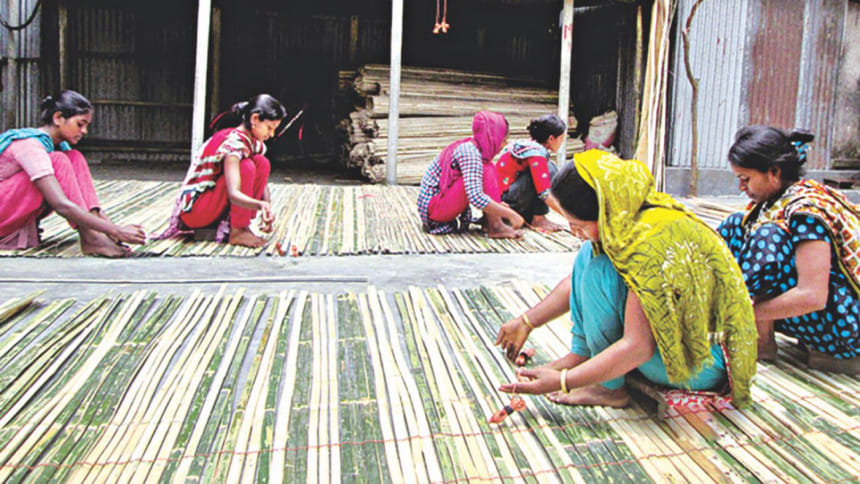Making fences, changing fate

There was a time when days passed slowly in Jabra village in Baniyajuri union of Manikganj's Ghior upazila. Three meals per day was once a luxury, without any gainful activity to fill seemingly endless hours. These days, however, the hours don't seem long enough. From morning until evening, many families are busy constructing bamboo fencing of the type favoured by fish farmers wishing to protect their ponds. From the fencing industry, most families in Jabra have achieved solvency.
“Over the last three decades the economic situation has changed,” says Madari Rajbangshi, 70, from Jabra Mahalhipara village. “Nowadays the village is busy with fence construction.”
According to her neighbour Ratan Rajbangshi, around 120 families are directly involved in the fencing industry, and they employ others. “School and college students work here,” he says, “They can earn up to Tk 7,000 per month. It covers not only their education expenses but helps with family living costs as well.”

“I have been making fences since I got married,” says Amela Begum, 40, from the village. “I can make two panels every day in addition to the housework. The peak season runs from about April through to October; during these months my daily income is about Tk 400.”
Local students Masum Mia and Purnima Rajbangshi help their parents during their free time. From bamboo fence construction, household expenses are met with some income left over, they said. Indeed in a village where going to school was once something of a luxury, nowadays it is usual for children to pursue education.
“A nine-foot by fifteen-foot stretch of fence costs around Tk 1,100 to make,” says wholesale producer Ujjal Kumar Rajbangshi. “We sell it for up to Tk 1,300. Buyers come to our door.”
Bamboo fences made locally are sold across fourteen districts including Dhaka, Pabna, Mymensingh, Gopalganj and Satkhira.
Baniajuri union council chairman Abul Quasem Chotu says the industry could expand further with some financial assistance and availability of interest-free loans. “The industry has the potential to create many more jobs,” he says.


 For all latest news, follow The Daily Star's Google News channel.
For all latest news, follow The Daily Star's Google News channel. 





Comments